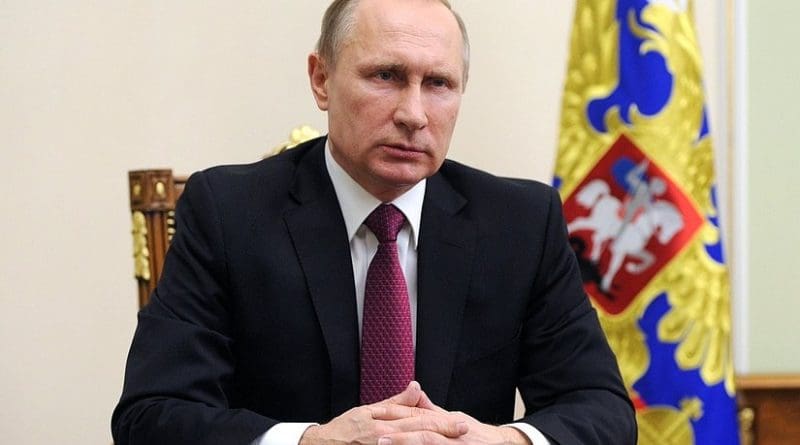Putin Regime Hybrid Of KGB Honor Code And Criminal Practice – OpEd
By Paul Goble
In C.P. Snow’s 1954 novel, The New Men, about the beginnings of the Cold War, one character, who writes literacy criticism for the BBC, reflects on how difficult it is for a Western intellectual to respond to America’s use of a nuclear weapon against Nagasaki only a few days after it had dropped the first on Hiroshima.
One could defend the first, he said, as an act of military necessity, but not the second. For an English intellectual like himself the only possible comment was to focus on something so far removed from what had happened as to be a reaffirmation of the Western intellectual tradition of which he or she is a part.
Today, one is left with a somewhat similar feeling about Vladimir Putin’s so-called “victory” in the so-called “presidential elections” in the Russian Federation, an event that should be marked perhaps by a discussion of the best traditions of Russian thought or a reference to something so obscure within that country as to constitute a proper mirror of events.
But happily, Moscow commentator Ivan Davydov provides what may be an even more useful approach in a Republic post on “the genealogy of morality of contemporary Russia” which focuses on “how the current rulers [of that country] are distinguished from the criminal world of the 1990s” (republic.ru/posts/90011).
The recent scandal involving Russian diplomats and cocaine shipments from Argentina renewed talks in Russia that the current Russian leadership are just like the criminals of the 1990s, Davydov says. There is some truth in this but it is not the whole truth – and recognizing the difference between the two related species is important.
Critics often point to Putin’s use of criminal slang in his speeches or his origins in the streets of Leningrad as evidence that he was a criminal from the beginning, but that again is only part but not the whole truth. Had he or his colleagues been criminals from the outset, they would never have been recruited for work in the KGB or other siloviki organs.
Having become part of the Soviet organs, Putin and his like acquired “a special view on reality and became part of a special ethos,” but it was not a criminal one in the usual sense. However, when the Soviet system collapsed, their reality and even raison d’etre did as well – “and this was a serious trauma.”
According to Davydov, “an impressionable man with a hypertrophied ego was thus completely capable of declaring such a personal collapse as the greatest geopolitical catastrophe” and viewing the life that followed “a psychological trauma” which required striking back at the new order, something that made those who felt the same psychologically close to criminals.
“The siloviki had lost their world and could not but feel it,” the commentator says; and they cast about for ways to take their revenge. Those did not include simply seeking to restore the past but rather making the best for themselves in the new circumstances, having convinced themselves as criminals do that any means to that end are permissible.
These former KGB officers became the new feudals in Russia and everything came to them as a result, Davydov says. “It is difficult not to recognize the traces of this hybrid worldview, a combination of criminal understandings with the honor code of officers of the special services literally in all of them.”
For them, like the criminals, law is the enemy, something only for others; but for them unlike the criminals, they want others to recognize what they have as legitimate and not as the theft it in fact typically is. These two goals don’t fit together well, but those who hold both at one and the same time aren’t going to change. And Russia will continue to suffer as a result.

